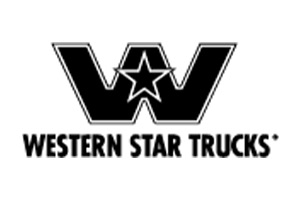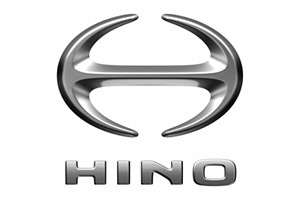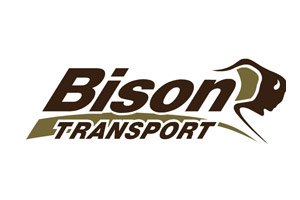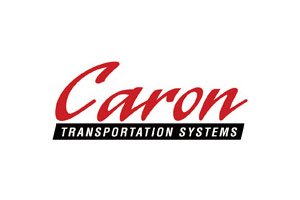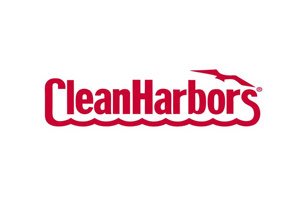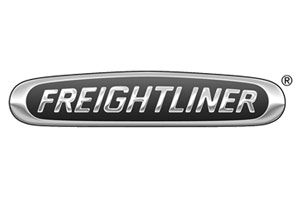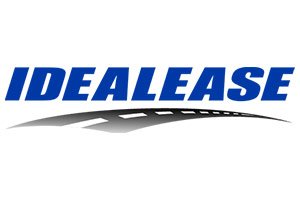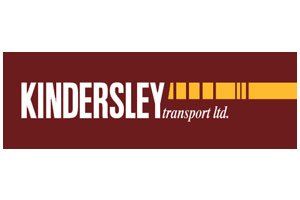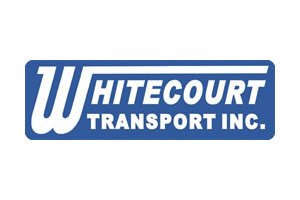Key Takeaways
-
Employing qualified technicians makes the shop safer, reduces vehicle accident risk and keeps cars at the highest standards – a win for employees and customers alike.
-
In addition to peace of mind, opting for qualified technicians saves you money in the long run, since you won’t be paying for expensive do-over repairs or business downtime.
-
Expert technicians optimize uptime, making fleets hum and productivity purr.
-
Diagnostic precision from trained technicians stops misdiagnoses that cut down on wasteful spending and safeguards investments.
-
Ongoing training and professional development are necessary for technicians to stay ahead of emerging technology and deliver quality service.
-
By partnering with high-quality technician providers, it aligns with business objectives and builds brand reputation and customer confidence in multiple marketplaces.
These qualified technicians are trained professionals equipped with the appropriate skills, expertise and certifications to deal with technical tasks in areas such as electronics, automotive, information technology and medical. They generally begin with hands-on training or education, then obtain licenses or certifications that demonstrate they’re able to do the work correctly and safely. Most work in labs, or repair shops, or clinics or on clients’ sites, and utilize tools or test gear or computer systems on a daily basis. Staying current with new tech is crucial, so many take supplemental courses to stay sharp. Businesses rely on these employees for quick and secure repairs, which reduces hazards and minimizes downtime. The following sections discuss what qualifies a technician and why it’s important work in the present.
The Core Benefits

Hiring quality technicians isn’t simply a matter of occupying a position — it’s about keeping trucks on the road safely, performing optimally, and extending vehicle lifespans. Their expertise enables businesses to reduce risk, save cash, and keep those trucks rollin’. Certified technicians don’t just increase safety in the work environment and asset value, they keep businesses competitive by utilizing the most appropriate tools and techniques. These rewards reverberate throughout an organization, from the C-Suite to the line drivers and everyone in between.
1. Enhanced Safety
Trained technicians understand industry standards and adhere to procedures that reduce the risk of accidents. When they check trucks, they frequently identify hazards that other mechanics miss, such as worn brake pads or loose fittings. They employ the right tools, and their training means they don’t skip steps, even when rushed. Routine inspections and service from these pros identify issues before they cause mechanical failures, which helps keep people more secure both on and off the road.
2. Financial Prudence
Companies that employ quality technicians are the ones saving money. Veteran technicians identify and repair problems correctly the first time, so there are less re-dos. This clever strategy not only reduces replacement cost, but optimizes resource utilization. Less repair time = trucks out working sooner, earning more and losing less to downtime. Opting for certified techs is a shrewd investment as those returns tend to manifest themselves as improved margins and reduced expensive surprises.
3. Operational Uptime
Operational uptime translates into trucks having more hours moving freight and fewer hours in the shop. Skilled professionals operate quickly and accurately, which reduces repair time. This consistent flow of work keeps fleets humming. For instance, trained mechanics can detect a deteriorating alternator before it leads to a roadside breakdown, allowing components to be replaced during scheduled maintenance. This keeps timelines on time and work output elevated.
4. Diagnostic Accuracy
An experienced technician arrives at the core of an issue more quickly than a novice. They employ sophisticated strategies and adhere to tried-and-true processes, so they don’t grind through shooting in the dark. With the most current industry techniques in their back pocket, they identify problems that others overlook. Their applied science & engineering background helps them make smarter calls on repairs, which saves time & money.
5. Asset Longevity
Good care from expert mechanics makes trucks live longer. Your routine inspections save components such as tires and engines from premature burnout. A technician notices wear that would be missed during a quick scan, so issues get resolved before they multiply. Proactive service enables companies to retain their assets for longer and prevent catastrophic failures.
Verifying Competence
Validating a technician’s expertise is more than ticking off a skills checklist. It examines their expertise, practical skill and adherence to professional norms. Examiners need to see candidates face-to-face, sometimes for weeks at a time, and adhere to rigorous evaluation systems. We do it to verify that only those who are ethical and outstanding technicians are considered qualified to work on a truck.
Certifications
While certifications such as the CTech or CET are vital for verifying a technician’s competence, they demonstrate that you have undergone rigorous courses and examinations led by qualified examiners. These raters must maintain their competence by completing annual e-learning and re-calibrating their scoring approaches. A licensed technician has demonstrated that they comprehend professional codes of conduct and can satisfy established evaluation standards. For businesses, employing certified technicians equates to trusting one who stays current with professional standards. Not simply a certificate, but the technician has dedicated hours — sometimes 70 — under mentorship to demonstrate the same.
Experience
Experience adds currency that transcends classroom instruction. Truck technicians who’ve worked on thousands of trucks have seen it all and know where to locate clever fixes. After a few years, they acquire problem-solving smarts difficult to obtain by any other means. This expertise can be built up over years and is easy to identify in a person who can rapidly identify and resolve complicated problems. Businesses should seek out mechanics who’ve matured in their positions and have labored in other facets of truck maintenance. This type of hands-on experience is crucial for dealing with the unforeseen obstacles that accompany the position.
References
Good references count. When supervisors provide candid feedback about a technician’s work it helps organizations to know who they can rely on. References illuminate aspects such as work ethic, reliability and team fit. Nice references can set a tech apart from the crowd, particularly when your abilities and experience measure up to your peers. Taking time to do reference checks is a savvy move that saves you expensive headaches.
The Ripple Effect
The ripple effect is an elegant way to demonstrate how one event molds an entire system. Like a stone in a pond, one good hire can change the mood and results for everyone around. In business, this can translate to a clever way to keep work squads robust and secure, while enhancing faith and stronger outcomes from customers. With fleet teams, every move from a technician creates a ripple effect—large or small—that extends well beyond the repair bay.
Fleet Morale
Skilled technicians are the heart of a great work atmosphere. When the team trusts their techs, they know the vehicles are in good hands! This takes pressure off drivers, who don’t have to fret about unexpected breakdowns or safety hazards on the road. With less second-guessing and fewer surprises, it’s easier for everyone to focus on their jobs.
Nice trucks grease a driver’s day and fuel work pride. A driver who knows their vehicle is inspected by an expert tech feels appreciated. When it goes right, it creates a feeling of trust and camaraderie across the entire team.
Organizations that notice and incentivize technician talent frequently experience their entire group morale flourish. Sometimes a little thank you, or some public praise, can go a long way in making everyone feel like part of the win.
Customer Trust
A qualified repairman instills consumer confidence. They want to know their cars are being taken care of. When you fix it right, customers feel secure and cared for. This is the beginning of a relationship that will last forever.
Plain talk from engineers helps, too. When a tech details what was repaired and why, customers are involved and educated. Over time, this openness results in return visits and word of mouth.
Each good service establishes trust, and every slip can disintegrate it. Crafty techs maintain this faith, resulting in additional devoted customers.
Brand Reputation
Good, hard repairs, done by good, hard technicians, lift a brand’s reputation in the marketplace. When you do good work, people talk – word of mouth is a wonderful thing. A dip in standards can translate into awful reviews that sit there online.
A good reputation for expert fixes maintains a loyal user base and attracts new users. It rewards them to spend their money on training and hiring the best techs. It’s a clever approach to maintain their brand cachet.
Benefits of Hiring Qualified Technicians
-
Less risk of errors and expensive rework because members are better trained.
-
Less safety concerns, a safer working environment for all.
-
Elevated team spirit, with decreased attrition and more cohesive collaboration.
-
Improved customer loyalty, thanks to reliable and consistent service.
-
Sharper brand image, which helps attract more business and partners.
Future-Proofing Skills
Skilled trades are evolving. For these skilled technicians, getting ahead is about making sure their skills stay sharp and future-fit. Future-proofing is knowing your own strengths, recognizing where you can do more, and setting goals two to five years ahead. Technology, job requirements, and employer desire are constantly shifting. Hard to believe, we don’t stick with a job for life anymore, so future-proofing skills is crucial.
Evolving Technology
Truck tech moves quick—robotics, 3D printing, AI. These tools now do tasks that previously required humans. Technicians have stay up to speed, not just repairing engines, but working with sensors, software and safety systems. Training should demonstrate actual uses of these new tools. For example, a mechanic who figures out to use diagnostic software or fix electric vehicles becomes exceptional.
Technicians who are up to date on the latest tech can identify issues earlier and develop more effective solutions. This isn’t only good for customers — it helps businesses. Employers love employees who can rapidly pick up new systems and stay ahead of trends, like emission controls and predictive maintenance. Which is why it’s so wise for any company to hire flexible individuals.
Continuous Learning
Lifelong learning isn’t just a buzzword anymore—it’s a necessity. In crafts, workshops and seminars are great for picking up new tricks. Safety, new tools or software courses can be career-opening. Workers who continue to learn can advance, transition, or even change industries if necessary.
A culture of learning helps everyone: teams become stronger, and job performance goes up. Companies that invest in training experience decreased attrition and an increase in talent down the road.
Continuous learning can take many forms:
-
Online courses in diagnostics, robotics, or safety
-
Hands-on workshops at trade schools
-
Industry events and seminars to meet other experts
-
E-learning platforms with self-paced modules
-
Mentorship or peer learning within teams
By dedicating themselves to such regular self-checks and improvement, technicians keep themselves malleable. Mapping skills to learn next and setting small goals keeps you on track as jobs and tools evolve.
The Hidden Costs
Hidden costs arise when businesses employ unskilled technicians to perform maintenance. These costs manifest themselves in numerous ways, not merely in direct payments. They encompass lost time, reduced morale, increased turnover, and potentially even legal exposure. Just by comparing financial impacts, quality counts.
|
Technician Type |
Upfront Cost |
Repeat Repairs |
Lost Productivity |
Emergency Fees |
Liability Risk |
Equipment Life Extension |
|---|---|---|---|---|---|---|
|
Qualified |
Medium |
Low |
Low |
Low |
Low |
Up to 30% |
|
Unqualified |
Low |
High |
High |
High |
High |
None |
Misdiagnosis
Checklist for Accurate Diagnostics:
-
Review service history
-
Use proper diagnostic tools
-
Test each system methodically
-
Confirm findings with team
-
Document every step
-
Double-check before repair
Precision counts! Skilled mechanics understand how to identify minor problems before they become major. To miss these is to risk a quick fix becoming a big repair, costing a lot more. Rookie techs, on the other hand, can blow past concealed defects, dispatching a rig to back to the action only for it to break down again moments later.
Crack techs do complex problems well. They know what to ask and what signs to look for. Their training keeps you from making mistakes that waste time and money. Companies that invest in expert workers suffer less expensive errors from misdiagnosis.
Repeat Repairs
Always hiring subqualified techs is how you get the same problems popping up. Each return repair equates to additional downtime. Unapplied time in service bays accumulates, damaging both revenue and output.
Your patrons and employees sense it. Repeat issues can erode customer faith and exasperate employees. Properly done routine maintenance can contribute as much as 30% to equipment life. It saves expensive emergency repairs, which can run 50% higher than scheduled maintenance.
If you do repairs right the first time, it goes a long way towards keeping costs down and everyone happy. Firms that select smart operators experience fewer crashes and less downtime.
Liability Risks
Bad care by unskilled personnel presents actual hazards. One poor repair that results in an accident or damage can lead to lawsuits. Neglecting safety standards endangers the entire operation.
Legal trouble is expensive. Businesses need to comply with regulations and certified techs are the only ones that know these rules. Hiring skilled workers reduces risk and makes things safer for everyone. It raises morale because employees believe their development counts. Training skipped means turn-over, more hiring and more expenses.
Strategic Partnership

Building a powerful alliance with skilled technician services providers provides companies a true advantage. When companies introduce certified technicians, they don’t simply acquire technical ability—they acquire insider expertise, current best practices, and a wider service offering. This simplifies providing end-to-end solutions to customers and establishing brand credibility. For instance, a company that has a strategic partnership with a group of licensed HVAC professionals can provide upkeep and fix as well as installation, so clients don’t need to reach out to separate providers for assistance.
There are at least five main types of strategic partnerships worth looking at: joint ventures, technology partnerships, channel partnerships, integration partnerships, and influencer partnerships. Each has its own advantages, but not all fit every business. For example, an integration partnership allows a business to incorporate third-party applications or services into its core product, such as a software company partnering with a cybersecurity firm to create a more secure product. Choosing the appropriate kind comes down to a company’s needs, what gaps they need to fill.
Executive sponsorship is critical from the beginning. When senior leaders engage, they define the objective and ensure both parties musics toward the same destination. This prevents crossed signals and maintains collective focus on what’s important. Yes, a partnership is not a silver bullet but a move in the direction of long term benefits such as more efficient operations or improved customer support. Companies must view these relationships as an investment in sustainable productivity, rather than just a means of reducing short-term expenses.
A great partnership requires both parties to complement each other’s objectives and expertise. If a business wants to be a “one-stop shop” for its customers, it has to work with techs that can deliver that vision. Take, for example, a smart home device retailer that partners with trained installers to provide a comprehensive offering. These partnerships are strengthened by trust, open communication, and tools like the SCOPE framework, which allows both parties to determine whether the fit is right.
Conclusion
They’re the ones who make things great. They repair issues quickly, identify minor hazards, and maintain equipment efficiently. Teams operate with less stress. Customers believe the work more. The right skills manifest themselves in every task, from a routine inspection to an extensive assignment. A strong hire saves time and reduces waste. Well defined skills checks identify gaps before they proliferate. This pay-off manifests itself in less errors, downtime, and superior daily efforts. Smart teams understand the importance of a good tech. Stay astute, demand evidence, and seek expertise every step of the way. To maximize your human brain trust, keep skill checks on your radar and cultivate deep connections with reliable specialists.
Frequently Asked Questions
What defines a qualified technician?
A qualified technician possesses formal training, certifications and practical experience. They’re industry standard and can technically do some magic.
Why should I hire qualified technicians?
Qualified technicians do the job right, minimize risk and avoid expensive errors. With their background, they add an extra layer of security and confidence to every project.
How can I verify a technician’s qualifications?
Verify certifications, licenses, and references. You can see their training background and prior experience in the field before you hire.
What are the risks of using unqualified technicians?
Not only do unqualified technicians cause errors, they create safety hazards and equipment damage. This can result in increased repair expenses and project timelines.
How do qualified technicians impact long-term business success?
Skilled technicians enhance both service and customer experience. Their expertise fuels expansion and keeps things humming.
What ongoing training do qualified technicians need?
Qualified technicians require ongoing training to remain current with emerging technologies, safety protocols and industry best practices. This keeps them sharp and compliant.
Can partnering with qualified technicians save money?
Sure, qualified technicians minimize the risk of errors and breakage. This reduces maintenance costs over time and increases efficiency.


